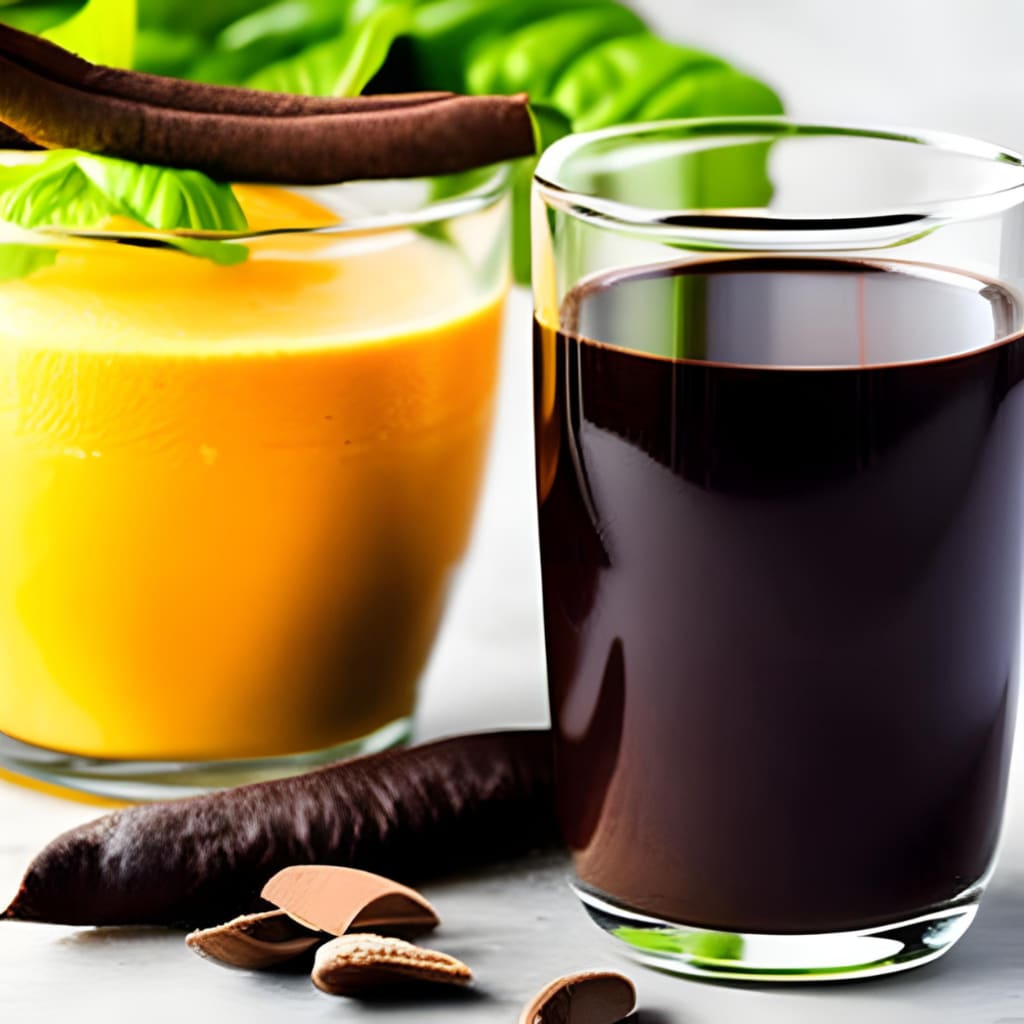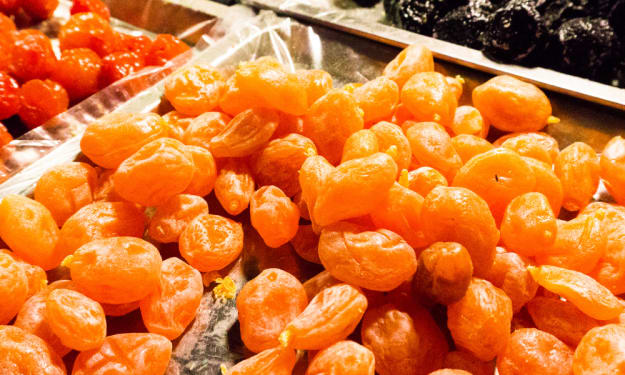What are the calories in carob juice and its benefits for your body?
The calorie content of carob juice is sought after by many individuals because carob juice is considered one of the popular Ramadan beverages that is present on every Ramadan table.

The calorie content of carob juice is sought after by many individuals because carob juice is considered one of the popular Ramadan beverages that is present on every Ramadan table. This is especially because it contains numerous essential elements, vitamins, and minerals that the fasting body requires. Additionally, it contains dietary fiber that improves the digestion process. However, it is important to be aware of the calorie content in each cup of carob juice, particularly for those following a dietary plan to manage excess weight. This enables them to maintain their dietary regimen and determine the appropriate amount of carob juice to consume.
Calories in Carob Juice:
When the fasting person breaks their fast with a cup of carob juice, the calorie content and other nutritional elements are as follows:
The calorie content in carob juice is approximately 655 calories.
The sodium content is around 26 milligrams.
The fat content is about 67 grams.
The carbohydrate content is approximately 194 grams.
The dietary fiber content is 23 grams.
Carob juice does not contain monounsaturated fats, saturated fats, or sugars.
It also contains approximately 2 grams of protein.
The calcium content is around 21% of the daily calcium needs for the body.
The potassium content is about 495 milligrams.
Calories in Dried Carob Pods:
The calorie content in dried carob pods is approximately 229 calories per 100 grams.
The calorie content in dried carob pods is the same as that in ground or crushed carob.
The source of calories in carob juice is primarily carbohydrates, which make up about 99% of the total calorie content.
Protein, on the other hand, accounts for only about 1% of the calorie content in a cup of carob juice.
Carob Juice Preparation Method:
Carob juice is an easy-to-prepare beverage, and the preparation method is as follows:
Ingredients:
2 cups of sugar.
2 liters of water.
1 kilogram of carob.
Preparation:
Soak the carob in water and leave it overnight or for at least 12 hours.
The next day, boil the soaked carob in water and let it simmer for an hour.
Strain the drink to remove any solid pieces.
After adding sugar to taste, let the mixture cool.
Many people prefer to consume carob juice cold, so you can add ice cubes to it.
Benefits of Carob Juice:
Carob juice is a wonderful beverage that offers numerous amazing benefits to the body, including:
Due to its dietary fiber content, carob improves bowel movement and aids in digestion.
The dietary fiber also stimulates gastric juice secretion and aids in digestion.
Carob protects the body from diarrhea and gastrointestinal disorders.
It helps in treating stomach ulcers.
Carob is beneficial for cases of kidney failure and contains minerals that protect against kidney failure.
The antioxidants and polyphenols in carob help prevent cancer.
Carob does not contain any triglycerides, making it a beverage that protects against heart attacks and blood pressure problems.
Despite its high calorie content, carob provides a feeling of satiety and aids in weight loss.
Carob contains moisturizing elements, making it beneficial for hydrating and protecting the skin from dryness.
Consuming carob regulates hormone levels in women, leading to a regular menstrual cycle.
Carob provides essential elements like calcium, potassium, and protein that are beneficial for pregnant women and their unborn babies.
It helps regulate blood sugar levels and protects against diabetes.
The calcium content in carob aids in preventing osteoporosis.
Side Effects of Carob Juice:
Allergic Reactions: Some individuals, especially those who are allergic to legumes, may experience allergic reactions after consuming carob juice. Symptoms of allergy may include fever, skin rash, and difficulty breathing.
Limited Research for Pregnant and Nursing Women: There is limited research on the safety of consuming carob juice for pregnant and nursing women. Therefore, it is advisable for women during pregnancy and breastfeeding to avoid consuming it.
Appropriate Dosage: The suitable daily dosage of carob juice depends on an individual's health condition, age, and weight. It is important to determine the appropriate dosage to avoid any potential side effects.
In conclusion, we have learned about the high calorie content in carob juice. Therefore, individuals who are conscious of their health and aim to reduce excess weight should not consume carob juice excessively. If consuming a cup of carob juice, it is advisable to reduce the calorie intake from other food sources.
About the Creator
chouaib achbani
Highly motivated and passionate blogger with a diverse range of interests seeking to leverage exceptional writing skills and creative mindset to engage and inspire readers.
Enjoyed the story? Support the Creator.
Subscribe for free to receive all their stories in your feed. You could also pledge your support or give them a one-off tip, letting them know you appreciate their work.






Comments
There are no comments for this story
Be the first to respond and start the conversation.